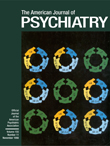Herbert S. Sacks, M.D., One Hundred Twenty-Sixth President, 1997–1998
It is my pleasure and privilege to introduce my longtime friend and colleague, Herbert S. Sacks. In describing Herb, two words come to mind: passion and service.
Herb is passionate in his concern for children and adolescents. The care of troubled children has been part of his professional life, ever since his internship in pediatrics, his residencies in adult and child psychiatry at Yale, and his analytic training at Western New England Institute. Immediately after completing training, he directed or consulted to several children’s psychiatric clinics in Connecticut and Vermont. But his passion for improving the welfare of children quickly broadened to service beyond the confines of New England. In the 1960s he became a senior consultant to the U.S. Peace Corps, training young volunteers when they were heading off to far-flung countries and helping them make the transition back to domestic life upon their return.
He also played a major role in a joint project of the Harvard Medical School, the Experiment in International Living, and the U.S. State Department, in Brazil. Beginning in 1976 and for the decade that followed, he was co-investigator and co-director of the Yale–U.S. Agency for International Development Senegal River Integrated Development Project in West Africa. The project addressed the sequelae of the great drought in that region, which, in the 1970s, caused the deaths of over 100,000 people. During that period he was the leader of a Yale–U.S. State Department crisis team, which designed health and rehabilitation measures for the stricken people of Senegal, thousands of whom were displaced, disrupting their village and family life. Herb worked with ministers of health, the World Bank, the World Health Organization, and the United Nations International Children’s Emergency Fund. He subsidized psychosocial research by the Faculties of Medicine of the Universities of Dakar and Abidjan. Most important, he spent much time in the field, working with village leaders and traditional healers, helping them implement a unique mental health component in this vast river project—a unique role for a unique person.
In subsequent years, Herb’s professional life has continued to be focused around the Yale campus, but he has maintained his international interests, serving on the Committee on International Health for the Yale Medical School as member and chair, and as Yale’s representative to the National Council for International Health’s Cambodian Refugee Health Clearing House. He has been, and remains, a valued teacher and supervisor at the Yale Child Study Center and spent 15 years teaching resident pediatricians how to be good doctors. Creatively blending his interest in developing countries and in late adolescent development, he also worked to create the Yale Five-Year Bachelor of Arts program in which students could take a year to work on projects in developing countries. He envisioned that they could use that year for reflection and exploration of themselves and their growing and changing identities.
Your President’s devotion to service applies also to our profession of psychiatry and to our American Psychiatric Association. Throughout his career, he has been the quintessential activist—serving as president of the Connecticut Psychiatric Society, as a very active member of the Assembly Executive Committee, as trustee for two terms, as Vice-President, and now as the 126th President of APA. He organized and chaired our first committee on universal access to health care, which laid the groundwork for APA’s proactive work on federal legislation in this arena.
But perhaps Herb’s overriding concern—throughout his service to APA—has been protecting the confidentiality of medical records—the cornerstone of our compact with our patients and one of the key therapeutic instruments in their care. He was a member of APA’s Committee on Confidentiality from 1976 to 1981 and served on the Task Force on Confidentiality of Children’s and Adolescents’ Clinical Records from 1976 to 1977. In addition, he was a member of the National Commission on the Confidentiality of Health Records, serving on its Board of Directors from 1976 to 1980.
This past year, as your President, Herb has testified before Congress on confidentiality issues and has written numerous letters to the editors of major newspapers on these critical issues.
Although he and his wife, Helen—an accomplished and widely respected professional in her own right—have traveled the world, often living overseas for several months at a time, they are happiest in their old country farm in Vermont, where they are part of the community. Their children spent summers growing up there, and now their grandchildren are having the same experience. A Vermont neighbor, artist Wolf Kahn, a close friend, is one of our lecturers at this annual meeting, and I have been privileged to count Herb and Helen as friends of mine for almost a quarter century.
While Herb—like most APA Presidents—may have some regrets at seeing his presidential year end, Helen will probably breathe a sigh of relief. Mountains of APA paper have spilled out of his comfortable study into the rest of his home. As Helen recently told friends, “We can’t have people over for dinner until Herb’s Presidency ends—and I get my dining room table back!”
And now, my colleagues and guests, our President, Dr. Herbert Sacks.
Presented at the 151st annual meeting of the American Psychiatric Association, Toronto, May 30–June 4, 1998. Dr. Mirin is Medical Director of APA. Address reprint requests to Dr. Mirin, APA, 1400 K St., N.W., Washington, DC 20005.



